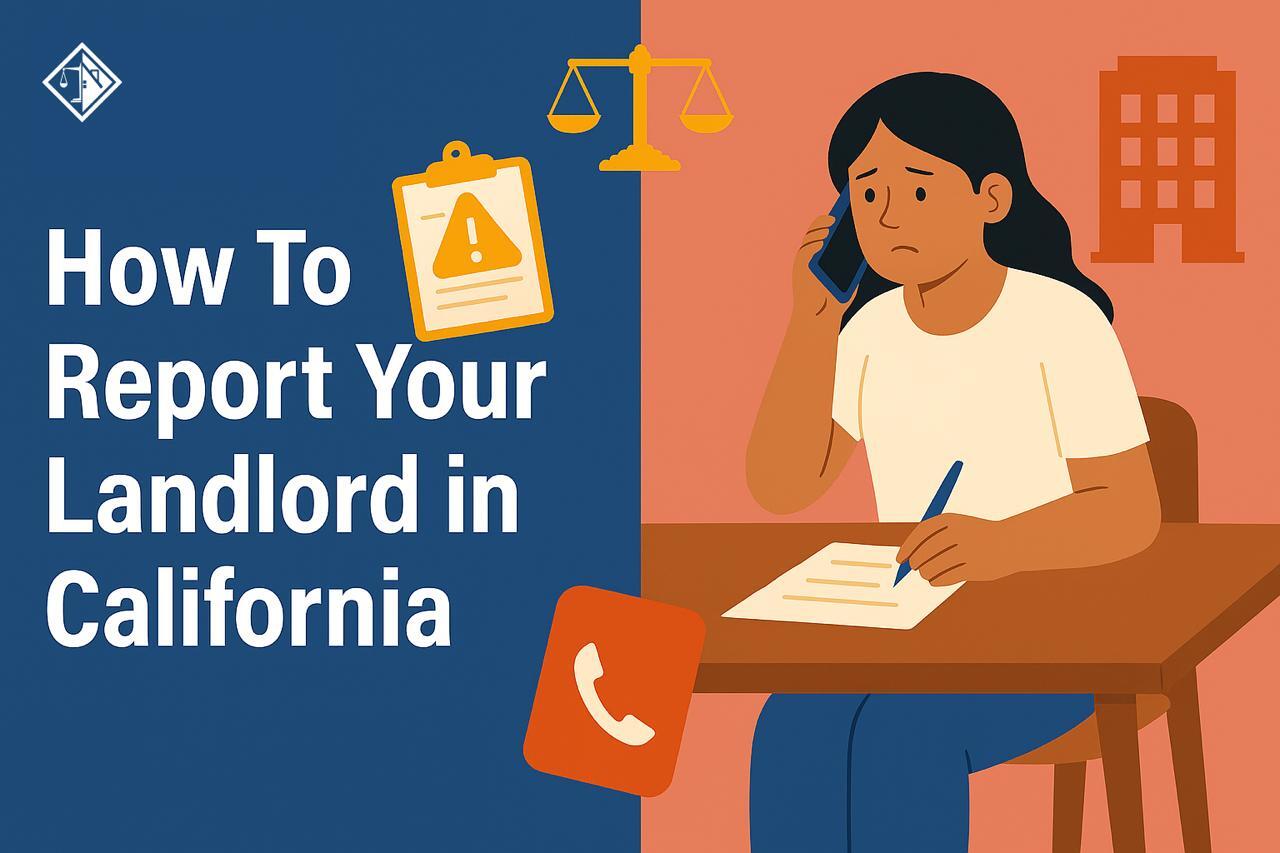How To Report Your Landlord in California
Home » How To Report Your Landlord in California

Toxic mold? Broken heater in the winter? Children living amongst roaches? You’re not alone. Every year, thousands of California tenants face unsafe living conditions while their landlords ignore their responsibilities.
Under California law, landlords must provide habitable living conditions that are safe and fit to live in. Your rights are protected regardless of your immigration status, and you have legal options when your landlord fails to maintain your rental unit.
This guide will help you understand how to report your landlord effectively and protect your rights as a tenant.
Understanding Landlord Retaliation
Before diving into reporting procedures, it’s important to understand that California law protects tenants from landlord retaliation when they exercise their legal rights.
Common forms of landlord retaliation include:
- Raising your rent
- Reducing services or amenities
- Serving an eviction notice
- Refusing to make repairs
- Harassment or threats
- Shutting off utilities
These actions are illegal when they occur in response to:
- Reporting code violations to authorities
- Requesting necessary repairs
- Joining a tenant organization
- Exercising any legal tenant right
When to Report Your Landlord
You should consider reporting your landlord when:
- They ignore repair requests for serious habitability issues
- Health and safety violations persist
- They fail to address pest infestations
- Essential services (heat, water, electricity) aren’t working and they refuse to fix it
- They engage in harassment or discriminatory practices
How and Where to Report Your Landlord
Step 1: Document Everything
- Take photos and videos of the problems
- Keep copies of all communication with your landlord
- Maintain a log of when issues began and when you reported them
- Save receipts for any related expenses
Step 2: Report to the Appropriate Authority
Depending on the issue, you can report to:
- Local Housing Department or Code Enforcement
- County Health Department
- California Department of Fair Employment and Housing
Step 3: Consider Legal Action
If reporting the issue doesn’t lead to a resolution, you may need to take legal steps. Options include:
- Filing a complaint in small claims court – For recovering damages or rent overcharges
- Using the “repair and deduct” remedy – Only with proper legal guidance, this allows tenants to fix serious issues and deduct the cost from rent
- Withholding rent – Only with proper legal guidance, and typically only when the unit is legally deemed uninhabitable
- Filing a lawsuit for damages – For serious violations of your tenant rights, including retaliation or unsafe living conditions
Addressing Common Concerns
- Worried about costs? Many tenant rights organizations offer free assistance, and most tenant attorneys work on a contingency basis – meaning you don’t pay unless you win your case.
- Fear of retaliation? California law provides strong protections against landlord retaliation. Document everything and report any retaliatory actions immediately.
- Immigration status concerns? Your immigration status does not affect your rights as a tenant. It’s illegal for landlords to threaten to report tenants to immigration authorities.
- Language barriers? Many housing agencies and legal aid organizations offer services in multiple languages and can provide interpreters.
Take Action to Protect Your Rights
Living in unsafe conditions isn’t just uncomfortable – it’s illegal. California law protects your right to a safe, habitable home, and you have the power to hold your landlord accountable.
If you’re dealing with an unresponsive landlord or unsafe living conditions, don’t wait until the situation worsens. Schedule a free consultation with our experienced tenant rights attorneys to understand your legal options and protect your rights.
Remember: The law is on your side, and you don’t have to face these challenges alone.